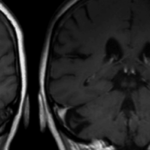1. Ischemic stroke patients assigned to aspirin-only, heparin-only, or both, had worse Modified Rankin Scale scores compared to those with no treatment.
2. The risk of progression to intracranial hemorrhage was greater in both intervention groups compared to control.
Evidence Rating Level: 1 (Excellent)
Study Rundown: Ischemic strokes occur due to a large-vessel occlusion in the arteries perfusing the brain. Although endovascular treatment is the gold standard for ischemic stroke, patients often fail to recover fully. Antithrombotic agents, such as aspirin and unfractionated heparin, are often administered in such cases, although their efficacy and tolerability remain unclear. This randomized controlled trial aimed to assess the efficacy of intravenous (IV) aspirin and unfractionated heparin, versus placebo, in patients with acute ischemic stroke. The primary outcome was Modified Rankin Scale score (0 [no disability] to 6 [death]) at 90 days, while key secondary outcomes included the National Institute of Health Stroke Scale (NIHSS) score and risk of intracranial hemorrhage. According to study results, administration of IV aspirin and unfractionated heparin increased the risk of intracranial hemorrhage in patients with ischemic stroke without significant improvements in functional outcomes. This study was strengthened by a multifactorial design which allowed researchers to isolate the effect of each intervention in patients with ischemic stroke.
Click to read the study in The Lancet
Relevant Reading: Clopidogrel and Aspirin in Acute Ischemic Stroke and High-Risk TIA
In-depth [randomized-controlled trial]: Between Jan 22, 2018, and Jan 27, 2021, 663 patients were enrolled across 15 health centers in the Netherlands. Included were those ≥18 years of age with known ischemic stroke, a score ≥2 on the NIHSS scale and absence of intracranial hemorrhage as confirmed on imaging. Patients were assigned to one of six groups (153 to no treatment, 156 to aspirin, 161 to low-dose heparin, 147 to aspirin and low-dose heparin, 22 to medium-dose heparin, and 24 to aspirin and medium-dose heparin). Among the 663 patients, median age was 73 years (interquartile range [IQR] 65-81) and the majority (53%) were male. There were no significant improvements in the primary outcome of MRS score among patients receiving either aspirin (odds ratio [OR] 0.91, 95% confidence interval [CI] 0.69-1.21), heparin (OR 0.81, 95% CI 0.61-1.08), or both, compared to control. A similar trend was observed for risk of symptomatic intracranial hemorrhage (aspirin vs. no aspirin: 14% vs. 7%, adjusted OR [aOR] 1.95, 95% CI 1.13-3.35; heparin vs. no heparin: 13% vs. 7%, aOR 1.98, 95% CI 1.14-3.46). However, these findings were not statistically significant. Overall, findings from this study suggest that use of intravenous aspirin and unfractionated heparin should be judicious for management of patients with acute ischemic stroke.
Image: PD
©2022 2 Minute Medicine, Inc. All rights reserved. No works may be reproduced without expressed written consent from 2 Minute Medicine, Inc. Inquire about licensing here. No article should be construed as medical advice and is not intended as such by the authors or by 2 Minute Medicine, Inc.


